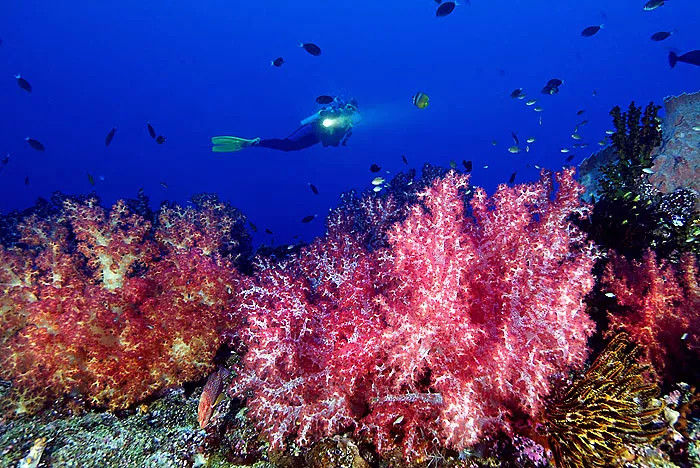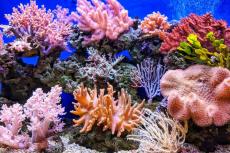Some coral reefs are adjusting to ocean warming
Some coral communities are becoming more heat tolerant as ocean temperatures rise, offering hope for corals in a changing climate.
Ocean warming is causing declines of coral reefs globally, raising critical questions about the potential for corals to adapt. In the central equatorial Pacific, reefs persisting through recurrent El Niño heatwaves hold further important clues; We have previously reported on Red Sea coral resilience to climate change.
Using an 18-year record of coral cover, spanning three major bleaching events hitting the Phoenix Islands Protected Area (PIPA), a new study finds the impact of heat stress on the coral communities lessened over time. The authors of the new study suspect heat-tolerant offspring from the surviving corals are repopulating the reefs, allowing the community to keep pace with warming seas, at least for the time being.
Extreme events can weed out thermally sensitive coral species, shifting communities toward dominance by stress-tolerant taxa. Such shifts can lead to increased resistance to future bleaching events but may compromise diversity and the recovery rates of coral populations.
“It’s easy to lose faith in coral reefs,” said first author Michael Fox, a postdoctoral scientist and coral reef ecologist at the Woods Hole Oceanographic Institution (WHOI). “But in PIPA, which is protected from local stressors, and where reefs have enough time to recover between heatwaves, the coral populations are doing better than expected.”
In the new study, researchers monitored coral communities at four islands within PIPA, an area encompassing over 400,000 sq km of coral reef and deep-sea habitat. After the 2002-2003 heatwave, the surveyed sites lost more than three-quarters of their coral cover. The reef was beginning to recover when the 2009-2010 heatwave hit, sparking fears of widespread bleaching, but two years later, coral cover had increased by more than five percent.
The new study could help coral reef managers identify coral communities most likely to survive in the warming ocean, improving conservation and restoration outcomes. Identifying and facilitating the conditions under which coral survival and recovery can keep pace with rates of warming are essential first steps toward the successful stewardship of coral reefs under 21st-century climate change.




























